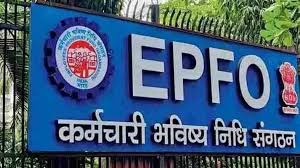(Supreme Court sets Law)
The judgments which contributed to develop Consumer Jurisprudence 1
Bombay High court struck down Rue 6(1) of Rule 2020 of Consumer Protection Act 2019
Legal issue ;Appointment of Presidents & Members in Consumer Commissions )
Dominance of executives over Judicial Person, chairman
Writ 3680 of 2023; Challenge to Rule 6(1) of the Rules of 2020:
Case Law :
Dr. Mahendra Bhaskar Limaye & others
Versus.
- Union of India, Through its Secretary, Ministry of Consumer Affairs, Food and Public Distribution, Department of Consumer Affairs, Krushi Bhavan, New Delhi.
- State of Maharashtra, Through its Secretary, Food and Civil Supplies and Consumer Affairs, Department/Ministry, Mantralaya, Mumbai-32.
Writ Petition No. 3680/2023
High Court of Bombay, Nagpur Bench
(Decided on 20 Oct 2023 )
According to the said provision, the President and the Members of the State Commission and the District Commission can be appointed by the State Government on the recommendation of the Selection Committee.
The constitution of the Selection Committee consisting of
- Two members from the Executive as the Secretary in-charge of the Consumer Affairs and a nominee of the Chief Secretary of the State, the doctrine of separation of powers is violated.
- In the light of the law laid down in these decisions, it is the contention of the petitioners that Rule 6(1) of the Rules of 2020 compromises the aspect of primacy to the judiciary in the Selection.
Hence HC HELD –
- Rule 6(1) invalid and the notifications dated 10.04.2023 and 13.06.2023 would not survive. They are accordingly quashed.in the light of earlier decided case by the SC in the matter of Rojer Mathew Versus South Indian Bank Limited & Others [(2020) 6
Pecuniary Jurisdiction of Commissions on The Basis of Paid Actual Cost
Case Law; M/S. Pyaridevi Chabiraj Steels Pvt. Ltd. V/S National Insurance Company Ltd. & ors Case No. 833 Of 2020
Decided on: 28 Aug 2020
Law Point -Pecuniary Jurisdiction of National Commission in the light of new provisions in the Act 2019
Bench -Hon’ble Mr. Justice R.K. Agrawal, President Hon’ble Dr. S.M. Kantikar, Member
Earlier Status: Consideration for Jurisdiction:actual loss,compensation and cost of litigation
Commission Held :The consideration paid should be the criteria
While enacting the Act of 2019 the Parliament, was conscious of this fact and to ensure that Consumer should approach the appropriate Consumer Disputes Redressal Commission whether it is District, State or National only the value of the consideration paid should be taken into consideration while determining the pecuniary jurisdiction and not value of the goods or services and compensation, and that is why a specific provision has been made
CCPA has jurisdiction to initiate proceeding Suo moto against enterprise
Case title:
Cloudtail India Private Limited. Versus Central Consumer Protection Authority CCPA Appeal No. 4 Of 2022, Decided on 23 Aug 2023)
(Against the Order dated 04/11/2022 in Complaint No. J-25/72/2021 of the CCPA DELHI)
CCPA while rejecting the plea that their product was international standard tested, directs Cloudtail India Private Limited to recall 1033 pressure cookers, sold by the company in the country which were not BIS marked , refunding its price to the consumers, within 45 days and imposed a penalty of Rs.100000/-, for selling the pressure cooker, in violation of Quality Control Order, 2020.
This is the first order of its kind by CCPA after CP Act 2019 enforced which has been challenged before the apex consumer commission questioning the jurisdiction of CCPA.Since this is the new entity established under the Act 2019 ,this order holds significant importance.
Home Buyer A Financial Creditor
The Supreme Court in the case of Pioneer Urban Land and Infrastructure Limited & Anr v. Union of India & Ors. (Writ Petition (Civil) No. 43 of 2019) (Decided on 9 Aug 2019) has held that the homebuyers from now onwards shall be considered as Financial Creditors under the Insolvency and Bankruptcy Code.
NCLAT in the case of Nikhil Mehta and Sons (HUF) v. AMR Infrastructure Ltd. held that
“The amount raised by developer from allottees under assured return scheme had the effect of “commercial effect of a borrowing”. Further, the amount so raised by developer was shown as “commitment charges” under the head “Financial Cost” in the annual return, which made it clear for the NCLAT to consider such allottees as “Financial Creditor” within the meaning of Section 5(7) of I&B Code.”
SC Held;
RERA is to be read harmoniously with the Code, as amended by the Amendment Act and in case of a conflict I&B Code will prevail over RERA. Further, the remedies that are given to allottees of flats/apartments are concurrent remedies, and therefore, allottees of flats/apartments are in position to avail remedies given under the Consumer Protection Act, RERA as well as I&B Code. Further, Section 5(8)(f) as it originally appeared in the Code is a residuary provision, which always incorporated within it allottees of flats/apartments. The explanation together with the deeming fiction was added by the Amendment Act to only clarify the position of law.
Law on forfeiture of Earnest Money: Real Estate
Legal Issue: How much deduction is reasonable and justifiable if the home buyer cancels the booking amount
Case Law; Goutam Roy V/S Avalon Projects
CC No 1941 of 2018, Decided on 24.01.2023 (NC)
A landmark judgement National Commission (NCDRC)
National commission ordered for forfeiture of 10% of the total sale cost of the property
Mediclaim Policy And Interpretation of Exclusion Clause
Material Fact defined
Material fact is not defined in the Insurance Act and, therefore, it has been understood and explained by the Courts in general terms
Life Insurance Corporation of India vs. Smt.G.M.Channabasamma (1991) (1) SCC 357 , the court held
“ Fundamental principle of insurance law that utmost faith must be observed by the contracting parties. Good faith forbids either party from non- disclosure of the facts which the party privately knows.”
P.C. Chacko and others V/S Chairman LIC of India
Supreme Court observed
“Misstatement by itself is not material for repudiation of the policy unless the same is material in nature. Proposal can be repudiated if a fraudulent act is discovered’
Mithoolal Nayak Vs. Life Insurance Corporation of India (AIR 1962 SC 814), and further followed by number of Supreme court judgement in Life insurance corporation of India v/s Smt. Asha Goel and others 111 (2012) CPJ 5 civil appeal no. 4186-87/1988 SC in which the position of law was stated that
“Three conditions must fulfil for application of exclusion clause and for bringing the case under pre-existing disease. Second part of Section 45 is:
- The statement must be on a material matter or must suppress facts which were material to disclose
(b) The suppression must be fraudulently made by the policy holder; and
(c) The policy holder must have known at the time of making the statement that it was false or that it suppressed facts which it was material to disclose.
New windows opening in favour of Home Buyers; Developer in leaning mode
In civil appeal No. 3778 of 2020 in the Supreme Court before the bench of M.R. Shah; B.V. Nagarathna, J in case of Amit Katyal V/S Meera Ahuja & others,
(Decided on March 03, 2022 ) Apex court allowed withdrawal of Corporate Insolvency Resolution Process (CIRP) against a builder in an application filed by three homebuyers in view of a settlement plan agreed upon by the majority of them. In the larger interest of the homebuyers, the apex court exercised power under article 142 to permit withdrawal of the CIRP proceedings and set aside all matters pending between the parties, this order is passed on March 03, 2022
Apex Court held- Insolvency and Bankruptcy Code, 2016 – The object and purpose of 14 the IBC is not to kill the company and stop/stall the project, but to ensure that the business of the company runs as a going concern
What is Article 142 of the Constitution of India
The Indian Judiciary and the constitution of India believe that every citizen of India must get “complete justice”. The Constitution of India under Article 142 grants the power to the Supreme Court for passing any decree to do “complete justice” Further, there is no specific guideline or rule provided by the law which explains when, where and under which circumstances the Apex Court can invoke the said article to do “complete justice”.
This was yet another way by which home buyer’s interest is protected by making an arrangement to settle their dispute in a very short procedure before NCLT. For Years together home buyers were dependant on Consumer Commissions only for redressal of their grievance &refund of their hard-earned money invested with builders. Then came RERA Act 2016 as an additional remedy to home buyers and it made a remarkable change in real estate sector. Amendment in section 5 of IBC 2016 made home buyers Financial Creditors which was another boost for consumers. This is yet another window opened for investors in developers’ projects and now NCLT also came ahead in settling the accounts between disputing parties .
Applicability of IBC 2016 – As per Section 12A Insolvency and Bankruptcy Code, 2016; a party can approach NCLT/Adjudicating Authority directly and the Tribunal may in exercise of its powers under Rule 11 of the NCLT Rules, allow or disallow an application for withdrawal or settlement. In an appropriate case and where the case is being made out and the NCLT is satisfied about the settlement, may permit/allow an application for withdrawal or settlement at any stage before a COC is constituted.
Telecom matters back to Consumer Commissions
(Supreme Court Reverses its own order)
27 Feb 2022
Case : Vodafone Idea Cellular Ltd. vs Ajay Kumar Agarwal Decided on 16 Feb 2022
It was a historic day when the Hon’ble Apex Court after long thirteen years declared that Consumer Protection Act is a Specific act and not a general act. The three judges bench comprising Justices DY Chandrachud, Surya Kant and Vikram Nath further observed that the existence of an Arbitral clause under the Indian Telegraph Act, 1885, will not oust the jurisdiction of the consumer forum.
It was as back as in 1992 when National Commission in a case before it for adjudication was to decide on the issue as to whether existence of a remedy by way of arbitration in the Indian Telegraph Act preclude an aggrieved consumer to seek remedy under the Consumer Protection Act. While deciding this matter between the Telecom Dist. Manager, Patna and Bihar State ware housing corporation 1(1991) CPJ 379, National commission held that consumer can seek remedy under the Consumer Protection Act.
But SC reversed the order stating Indian Telegraph is specific act and hence sec 7 B of the act will prevail over CP Act
Now Apex court reversed the order, finding it erroneous in view of the applicability of then prevailing law
Now two major questions are again the issues before the same apex court but now before the larger bench –
- Whether consumer protection act is a general law or specific law.
- Whether Arbitration clause bars the jurisdiction of consumer commissions
On the first point the court disagreed with the view taken in M. Krishnan (supra)
“The decision is incorrect on two grounds. First, it failed to recognize that the Act of 1986 is not a general law but a special law that has been enacted by Parliament specifically to protect the interest of consumers. Second, even if it is assumed that the Act of 1986 is a general law, it is a settled position of law that if there is any inconsistency between two legislations, the later law, even if general in nature, would override an earlier special law.”
On the second issue of bar by arbitration clause, argument was extended with force that incorporation of telegraph services in the Consumer Protection Act, 2019 by the parliament indicate that legislature has considered jurisdiction of consumer commissions over telecom matters,
‘RERA’ emerging as a powerful law in builders’ matters
Arrest Warrants Issued Against 3 Known Builders of Noida – Greater Noida including Superteck builders for non-compliance of RERA orders is a news Dated May 11, 2023 in discussion. Issue was non-compliance of recovery order issued under section 40 of RERA Act 2016. The district administration detained RK Arora, chairman of the Supertech Group, one of the biggest defaulters of UP RERA. A signal went out among the builders that when strong action can be taken against big builders like Spartech, smaller ones will not be spared either. The Chairman of Supertech Group, RK Arora was interrogated in custody by the district administration for not paying the dues. He was later released after his company signed an agreement with the flat buyers for Rs 5 crore, gave a draft of Rs 2 crore, and promised to clear the entire dues of Rs 26 crore within this month. A day after cracking down on the Supertech group, arrest warrants have been issued against Mukesh Khurana owner of Rudra Build well, Mayank Chawla owner of Jatsya Builder, and Rajesh Yadav owner of Antriksh Builder. At the same time, orders have been issued to seal the offices of Jaypee Associates, Logix, and Mahagun. This action has caused a stir in the builders’ lobby. Four Tehsil teams are conducting raids at various places to arrest them.
This has given a loud message to the Real Estate industry about the increasing powers of RERA.The question has been raised by the legal luminaries as to under what rule this arrest has been made and do the RERA has got the power to issue such arrest warrants? To understand the legal proposition we need to understand Section 18 read with section 40 of RERA Act 2016
Transitional provisions after repeal of old Act 1986 and enforcement of Act 2019
Case ;Neena Aneja & Anr. Versus Jai Prakash Associates Ltd (SC)
Civil Appeal Nos. 3766-3767 of 2020
Decided on -16TH March 2021
Question of transfer of cases to the commissions after pecuniary jurisdiction changed
SC Held -A similar question was dealt with by the NCDRC in its Judgment 8 April 2011 in. which construed Amending Act 62 of 2002 by which the pecuniary limits of jurisdiction were enhanced with effect from 15 March 2003. Relying on the earlier decision in Premier Automobiles Ltd. v. Dr Manoj Ramachandran, the NCDRC had held that the amendments enhancing the pecuniary jurisdiction were prospective in nature. The legislature must be considered to be aware of this precedent.
Also, section 107 of new Consumer Protection Act also makes it clear that status co shall be maintained as per going on cases are concerned



